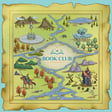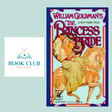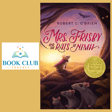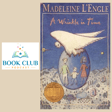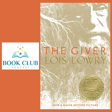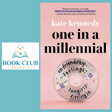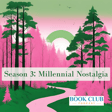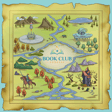
Harry Potter and the Goblet of Fire by J.K. Rowling Book Club
In this episode of the Book Club Podcast, host Carly, an Elder Millennial, is joined by guest Jenni to discuss Harry Potter and the Goblet of Fire by J.K. Rowling. The episode delves into personal anecdotes about discovering the series, revisiting the story, and its impact on their generation. They explore the book's plot, character relationships, societal themes, and the broader Harry Potter universe. The conversation also touches on the challenges and emotional aspects of revisiting beloved childhood books, the portrayal of female characters, and the movie adaptation's strengths and weaknesses. Tune in next month for a discussion on William Goldman’s The Princess Bride!
Subscribe to our email newsletter on Substack: https://bookclubpod.com/ and be sure to follow us on Twitter and Threads!
00:00 The Goblet of Fire Chooses Harry
00:45 Welcome to the Book Club Podcast
01:02 Personal Harry Potter Journeys
03:50 Discussing the Goblet of Fire
05:12 Summary of the Goblet of Fire
12:14 Wizarding World and Muggle Relations
21:01 Rita Skeeter and Journalism
24:59 Impact of Cedric's Death
36:01 Revisiting Harry Potter
38:35 Harry Potter and the Cursed Child: Initial Impressions
38:59 Breaking Rules: A Millennial Perspective
39:24 Generational Differences and Rule-Breaking
47:22 The Importance of Genuine Connection
52:25 Female Characters in Harry Potter
58:32 The Hero's Journey and Millennial Reflections
01:03:01 Movie Adaptation: Hits and Misses
01:07:20 Final Thoughts and Next Book Discussion
